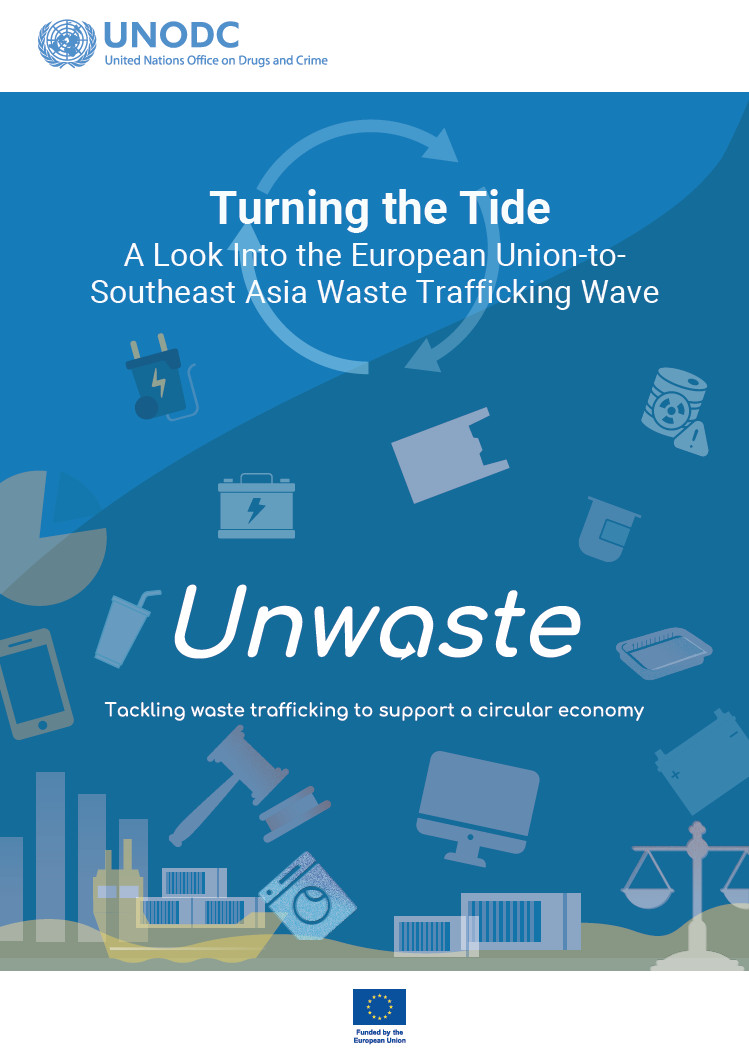Waste trafficking has emerged as a pervasive global challenge, often concealed within legitimate trade flows and driven by high profits with minimal risk. This illicit activity threatens not only the integrity of the legal waste trade but also undermines efforts to transition toward a circular economy. Criminal networks exploit regulatory gaps and enforcement weaknesses, leveraging legal business structures to disguise illegal waste shipments. The complexity of global supply chains and inadequate monitoring further enable these actors to operate undetected. The scale of the problem is significant—within the European Union alone, illegal waste shipments are estimated to account for 15%–30% of total waste trade, generating an annual revenue of €9.5 billion for the illicit market.
Turning the Tide: Unmasking the Waste Trafficking Wave from the European Union to Southeast Asia is the first in a series of reports produced under the Unwaste project, offering an in-depth exploration of waste trafficking dynamics. This publication examines the movement of waste—both legal and illegal—between the European Union and the ASEAN region, identifying emerging trends and the steps taken by Southeast Asian nations to combat this issue while facilitating lawful trade. Subsequent reports in the series delve deeper into critical aspects of waste trafficking, including a legal framework review and gap analysis by the United Nations Environment Programme (UNEP), an investigation into cyber-enabled waste crime, and an assessment of corruption’s role in enabling illicit waste trade and related financial crimes such as money laundering. Each report concludes with strategic recommendations aimed at strengthening global efforts to curb waste trafficking.


